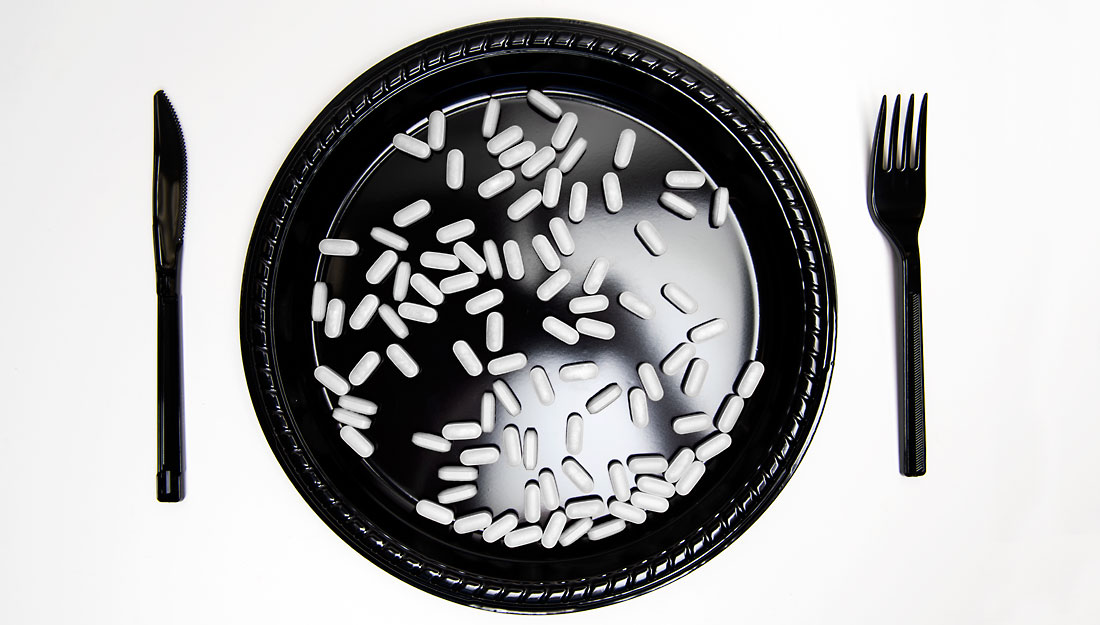You Asked: What are the benefits of probiotics?

“Promoting life.” This is a slogan everyone can get behind. But, did you know it’s actually the definition for “probiotic?” In fact, taking a probiotic supplement or eating a serving of yogurt a day may have the potential to keep certain ailments at bay.
Probiotics are bacteria that live in your digestive tract. They are often heralded as ‘good’ or ‘friendly’ bacteria and naturally occur in certain foods—in fermented vegetables like sauerkraut and kimchi and in live-cultured yogurt.
The benefits of healthy gut bacteria have surged into public consciousness over the past several years. It’s one reason why yogurt now outsells ice cream, and why probiotics are a multi-billion dollar industry.
“Probiotics are most known for their ability to prevent and even alleviate certain gastrointestinal (GI) disturbances,” said Robert C. Alaniz, PhD, assistant professor in the Texas A&M Health Science Center College of Medicine’s Department of Microbial Pathogenesis and Immunology.
When the digestive tract works properly, it filters out damaging bacteria, toxins, chemicals and other waste products. So, where do probiotics come in? Alaniz believes probiotics are producing beneficial compounds that prevent GI disturbances and inflammation.
“Probiotic consumption has the potential to reduce episodes of diarrhea and are especially useful to take if you suffer from traveler’s diarrhea,” he said. “Many people reported their symptoms often abated or disappeared after they took a probiotic when experiencing GI distress.”
Is irritable bowl syndrome (IBS), constipation or bloating causing misery in your life? If so, eating a serving of yogurt a day could keep you regular all day. A study by John Hopkins University found people with constipation-dominant IBS reported less bloating and more frequent bowel movements when consuming yogurt regularly.
One of the most well-known strains of gut bacteria is Lactobacillus rhamnosus GG (LGG). New research has shown LGG can help with intestinal problems, respiratory infections and some skin disorders.
Probiotics may even have the potential to slim belly fat—although, the research is still unclear.
According to Alaniz, the positive benefits of probiotics aren’t limited to one part of your body. “Some animal studies have suggested that probiotics can help alleviate allergies or certain medical conditions like asthma,” he said. “When probiotics were given at the same time as the allergen, the allergen was sensitized—and those animals who were given probiotics had a dramatically reduced allergy response or prevented it from developing at all.”
He noted these studies could suggest that humans who take probiotics regularly could reduce the effects of auto-immune or allergic disorders. “The work on this is still very early but the promise is extremely exciting,” he said.
“It has been long appreciated that gut health promotes overall health,” Alaniz said. “Hippocrates, the so-called father of medicine, stated ‘all disease begins in the gut.’”
While many studies hail the positive impacts of probiotics, they aren’t the be-all-and end-all cure to human health. “While many manufacturers laud the benefits of their supplements it’s important to remember probiotics are not a one stop cure all,” he said.
According to Alaniz, implementing a daily probiotic supplement into your routine can’t hurt. “When people pay attention to their body and the new emerging research in the health care landscape, many positive benefits can be reaped.”
Alaniz encouraged anyone thinking about starting a probiotic regimen to speak with their health care provider. “Even when using natural supplements it’s always good to let your physician know when beginning any new regimen,” he said.
Media contact: media@tamu.edu


